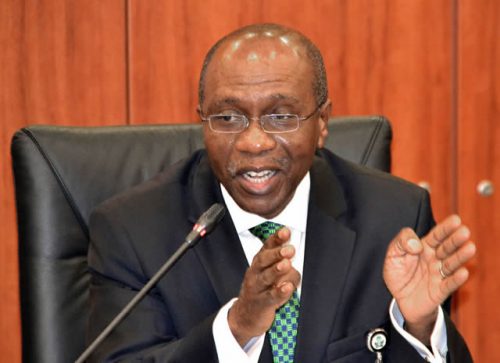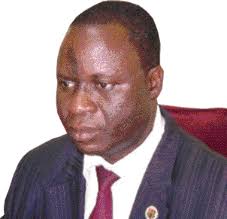The Governor of the Central Bank of Nigeria (CBN), Mr.Godwin Emefiele, on Sunday said that the monetary authorities opted for maintaining stable exchange rate for the nation’s currency rather than building the foreign reserves in view of the beneficial effects of the adopted option for the economy.
He gave this hint while briefing journalists on some of the outcomes of the Nigerian delegation’s meetings with investors and economic stakeholders at the International Monetary Fund (IMF) and World Bank Group (WBG) Annual Meetings in Bali, Indonesia, which ended today.
Emefiele explained developing economies and markets have suffered from a plethora of macroeconomic challenges over the past few years, including the foreign reserves decline and not just depreciation.
Specifically, he pointed out that like other emerging markets nations, Nigeria had lost reserves though only marginally due to the fact that the country had managed to sustain stability in its foreign exchange market.
He said: “We are very conscious of the need to build buffers but unfortunately I must say that we are in the period where it will be difficult to talk about building reserve buffers.
“We can only build reserve buffers if we want to hold on to the reserve and then allow the currency to go, and wherever it goes is something else.
“So it is a choice we have to make and at this time the choice for Nigeria is to maintain a stable exchange rate so that businesses can plan and we do not create problems in the banking system assets”, the apex bank governor added.
The banking expert said that one of the takeaways from the meetings was that the IMF and the World Bank advised that national governments should build country-specific policies and fiscal and structural reforms that would grow their economies and alleviate poverty.
In her remarks during the briefings, the Minister of Finance, Hadjia Zainab Ahmed, noted that the latest World Bank’s Human Capital Development Index (HCI) which ranked Nigeria at 44 percent was disheartening, assuring that government will take steps to reverse the poor rating.
The minister said: “We admit that this pervasive action was due to long years of under-investment in human capital, which we have before now realised and for which we have been addressing.
“Apart from major policy actions, some decisive actions are being taken to address the situation”, Ahmed added.
She disclosed further that the Nigerian delegation met with representatives of Fitch and Moody’s during the IMF/World Bank meetings and presented to them the summary and synopsis of the recent economic and financial developments in Nigeria.
The minister explained that the meeting with the rating agencies’ representatives enabled them to be able to critically and objectively evaluate Nigeria’s credit worthiness.




